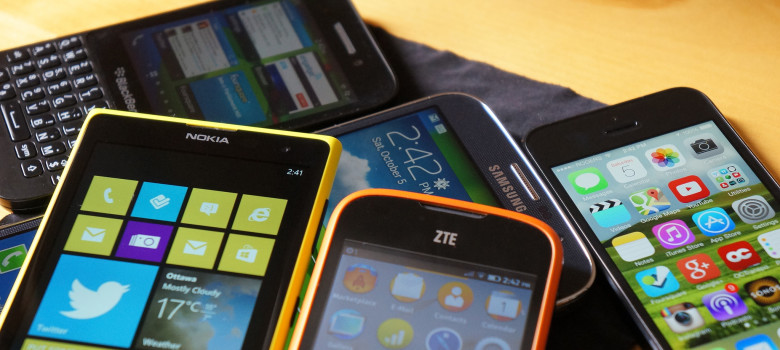Today is “Cellphone Freedom Day”, the day that most Canadian consumers can say goodbye to three year cellphone contracts. With the Federal Court of Appeal recently rejecting an attempt by the major carriers to stop the retroactive applicability of wireless code as of June 3rd (the two year anniversary of the code), consumers with cellphones that have run for more than 24 months can now cancel their contracts without penalty. That includes consumers with three years contracts that still have time left on their contract. As the CCTS notes:
three-year contracts which have run for more than 24 months can be cancelled without payment of cancellation fees, as the Code requires such fees to be reduced to zero within 24 months. Cancellation of three-year contracts in which the customer received a device subsidy but which have not yet run for 24 months (those entered into between June 3 and December 2, 2013) may still require payment of a cancellation fee.
Since the wireless companies switched to two-year contracts soon after the CRTC’s wireless code decision, there will be relatively few consumers with three year contracts that have not run for 24 months and those will hit the two-year mark within the next few weeks or months.
The shift to two-year contracts is a change that the carriers spent years fighting to stop. The Canadian Wireless Telecommunications Association introduced a voluntary code of conduct in 2009 with no expectation of government regulation. The provinces soon took action, starting in the province of Quebec, which enacted new consumer protections in 2010. Those protections included safeguards against pricey termination fees, prohibitions against unilaterally changing terms of service, and greater disclosures about warranties. The wireless carriers unsurprisingly opposed the new rules, claiming they would result in higher consumer costs and delayed access to new smartphones and other devices.
Those claims proved unfounded and the Quebec initiative was quickly followed by similar developments in Manitoba and Ontario. In Manitoba, a consultation on new consumer protections was roundly criticized by the Canadian Wireless Telecommunications Association, which said “the rationale for provincial intervention in the telecommunications sector is not compelling, and that at the end of the day, consumers are better served by competition than by regulation.”
The carriers worked hard to convince regulators that even the most disliked aspects of the market should be maintained. Canadians consistently objected to the widespread use of three-year contracts, yet a Scotia Capital report claimed that the lengthy contracts help spur smartphone adoption. However, studies showed that countries with even higher smartphone adoption rates such as the UK and Spain did not have three-year contracts (the UK banned the practice in 2011).
Once the CRTC began to develop the wireless code, the issue of contract length was the top issue raised by consumers, who argued that Canadian wireless contracts were longer than most other countries and that they represented a significant barrier to effective competition. The carriers once again encouraged the CRTC to resist change, with companies like Bell arguing that the change was “anti-consumer.”
After the CRTC allowed for termination without penalty after two years and ruled that the wireless code would apply to all contracts as of June 3, 2015, the carriers challenged the decision in federal court. The court upheld the CRTC decision, stating:
Given the CRTC’s intention to put more information into the hands of consumers so as to increase the dynamism of the market, it is reasonable to have all consumers on the same footing as soon as possible.
With that ruling, years of lobbying against enforceable consumer protections for wireless services were effectively defeated. As of today, all Canadian wireless subscribers benefit from the wireless code of conduct, including the ability to cancel services that have run for two years without further fees or penalties.








How does this work if my 24 months occurs after today (June 3, 2015) but before the end of the month? If I cancel with Rogers after 24 months will I still have to pay a cancellation fee?
My understanding is that as long as you wait until your 2yr anniversary, there is no cancellation fee. Indeed! That even means that if your subsidized phone is not fully paid off by the two years, the carrier loses the remaining subsidy.
That might seem a little unfair to the carriers, but as far as I am concerned it is just desserts for the screwing over of their customers that they have been enjoying for many many years.
As Nelson (from The Simpsons) would say “ha ha”.
Great article; a real public service and education. Thanks.
Well. I checked the balances owing on the 4 phones on my account yesterday, two on 3 year contracts and 2 on 2 year contracts. Then I checked them today. Balance total went down, but individually the 2 3 year contracts went to 0 but the other two went up! Is Rogers just screwing me again or is this the way it’s supposed to work????
Of course we don’t know. But they do. Ask them for an accounting of your balances.
Aren’t providers also required to unlock cell phones on request? What recourse does a consumer have when a provider will not do so, or will only do so if they are paid a fee?
Pingback: Monday Pick-Me-Up « Legal Sourcery
Hey, bro really It’s very informative post for all Canadian cell phones user. So I like this article and also this site. and I saved this website in my browser.